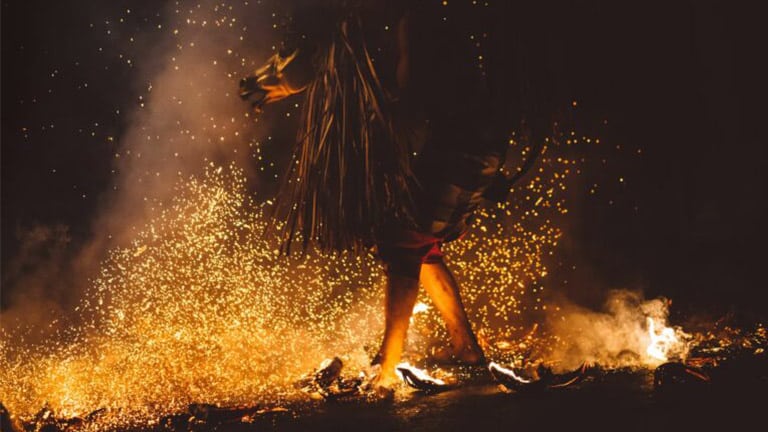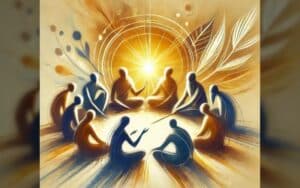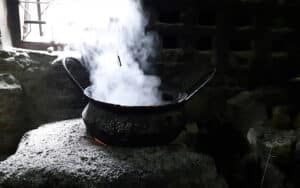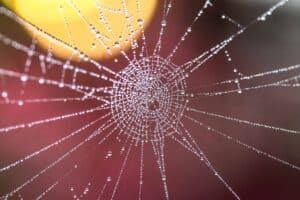Me, me, mine. This is my work, my business, my blog post, my identity, my family, my life.
Yes. Of course. There’s a critical and pragmatic case for attribution and ownership, and all the more when correcting historically or systemically unjust conditions. May we have healthy, pragmatic boundaries. May fairness prevail. May there be credit where credit is due.
And yet this angle of ownership isn’t the complete story. Not when we begin to engage at depth with our ancestors.
One unexpected impact of 25 years of relating with my ancestors in spirit has been the gradual softening of the intensely individualistic conditioning I am expected to internalize and replicate as a white American university-educated, middle class, cis-gendered guy. In its place has arisen a more embodied understanding of interdependence, symbiosis, distributed consciousness and community that includes both the spirits and the other-than-humans. I know myself as one face of my ancestral lineages and also as their extension in this dimension. “Me” becomes “we” as we go about our work in the world.
For example, I have written a book about ancestral healing. But the contents of the book are largely a gift from the spirits; they are not ultimately mine. Writing the book brought a kind of relief as it helped to move what was a kind of transmission from the spirits, resting like a strange chatty meteor in my living room, out of my personal life and into the larger public domain. The book carries my name but even the name is a nod to lineage. We have written a book. The collective that wears the face of Daniel has written a book.

To think and move in conscious relationship with my ancestors has come to feel more honest and respectful and also more resilient and adaptive. For example, I was trained as a psychotherapist and doctor of psychology to think of my issues, wounding, and trauma. This can usefully encourage an ethic of self-responsibility. But if by that we mean that we are both the creators of our hardship and of our healing, then we risk re-creating from the same extreme individualism and ensuing isolation that we seek to remedy. The vast majority of suffering that visits our personal lives is not personal at all, but the continuation of generations of family, lineage, and cultural pain. Whether it be our so-called inner worlds and private thoughts or the relational suffering present in our intimate relationship or communities, none of this is entirely “ours” to resolve or own. Personal healing is also systemic healing, we rise and fall together because we’re structurally inseparable from the rest of reality.
The human ancestors in particular are excellent teachers in learning to navigate the terrain of shared consciousness and deliberately porous identity. They remind us of entanglement and co-dreaming, not only within the larger body of humanity, seen and unseen, but also in our relationships with our other-than-human kin and the spirit world. We can of course commune directly with mountains and stars, wolves and redwoods, but the ancestors reflect back to us our capacity to stabilize those understandings in human form and over many generations. And at this point in history, that’s precisely good medicine at a time when human amnesia about our greater belonging so acutely threatens Earth’s biological diversity and our possible futures here.
We human folk have never fully forgotten what it means to live as the Earth, in relationship with the many beings. If this direct knowing is something you feel could be even more stabilized in your daily life, you have a fantastic source of guidance and mentorship available in your own lineage ancestors. It just may require trading a bit of “me and mine” for “we and ours.” A small price to pay for a greater belonging.
If co-creating with your ancestors is something that appeals to you, please join us for our first time offering a course that guides participants in learning to write with and for their ancestors and guides. Topics include guided practice on connecting with ancestors, safe and effective ritual practices for creative connection, and meditative writing practices. This live, eight-week course is co-taught by author Rachel Jamison Webster and Dr. Daniel Foor and requires no previous training or ritual experience.





